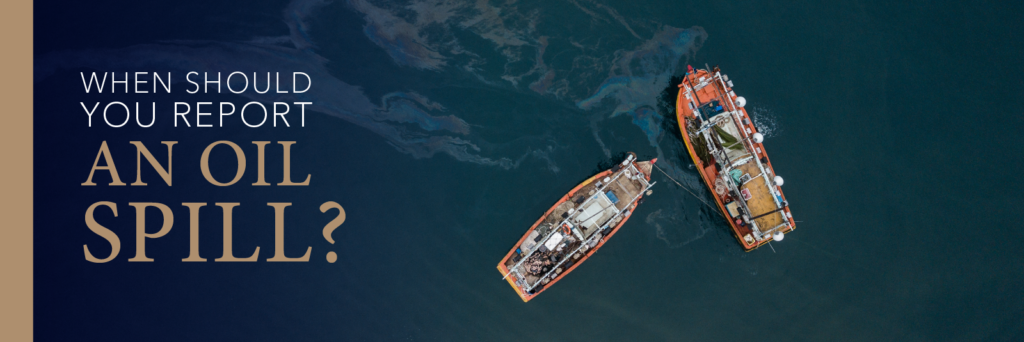How do you report an oil spill in the US waters?

Oil spills can have devastating impacts on the environment, wildlife, and local communities. It is crucial to report any oil spill in US waters promptly to ensure a swift and effective response. This article provides a comprehensive guide on how to report an oil spill, who to contact, the information to include in a report, the response and cleanup efforts, legal consequences for failing to report, and the environmental impact of oil spills.
Why is Reporting an Oil Spill Important?
Reporting an oil spill is essential to minimize the potential damage it can cause. By reporting promptly, authorities can initiate a response and implement cleanup efforts to prevent the spread of oil, protect marine life, and safeguard the coastal ecosystems. Timely reporting also allows for a thorough investigation into the cause of the spill, which can help prevent future incidents.
How to Report an Oil Spill
If you witness an oil spill or suspect one has occurred, it is important to report it immediately. To report an oil spill in US waters:
- Contact the National Response Center (NRC) at 1-800-424-8802 or 1-202-267-2675.
- Provide detailed information about the location, size, and nature of the spill.
- Follow any additional instructions provided by the NRC.
Who to Contact
The National Response Center (NRC) is the primary point of contact for reporting oil spills in US waters. The NRC is available 24/7 and serves as a central hub for coordinating the response efforts. In addition to contacting the NRC, it is advisable to inform local authorities, such as the Coast Guard or the Environmental Protection Agency (EPA), to ensure a comprehensive response.
What Information to Include in a Report
When reporting an oil spill, it is important to provide as much information as possible. Include the following details in your report:
- Date, time, and location of the spill
- Estimated size or quantity of the spilled oil
- Type of oil involved (if known)
- Potential source or responsible party (if known)
- Any observed impacts on wildlife, habitats, or public health
Response and Cleanup Efforts
Upon receiving a report of an oil spill, the responsible authorities will initiate a response and cleanup efforts. This may involve deploying containment booms, skimmers, and other specialized equipment to prevent the spread of oil and remove it from the affected area. Trained responders will assess the situation, coordinate cleanup operations, and work to minimize the environmental impact of the spill.
Legal Consequences for Failing to Report
Failure to report an oil spill can result in severe legal consequences. Under the Oil Pollution Act (OPA) and other federal regulations, individuals or organizations responsible for a spill are required to immediately report it. Failing to report can lead to civil penalties, criminal charges, and liability for cleanup costs and damages.
Environmental Impact of Oil Spills
Oil spills can have long-lasting and detrimental effects on the environment. They can contaminate water, harm marine life, destroy habitats, and impact the livelihoods of communities that rely on affected areas for fishing and tourism. The toxic components of oil can persist in the environment for years, causing ecological imbalances and harming both terrestrial and aquatic ecosystems.
Conclusion
Reporting an oil spill in US waters is crucial for prompt response and effective cleanup efforts. By reporting spills promptly, we can protect our environment, wildlife, and communities from the devastating impacts of oil pollution. Remember, every individual's contribution matters in preserving our precious marine ecosystems.
Frequently Asked Questions
1. What is considered an oil spill?
An oil spill refers to the release of liquid petroleum hydrocarbons into the environment, usually resulting from accidents during transportation, extraction, or storage of oil.
2. How long do I have to report an oil spill?
An oil spill should be reported immediately upon discovery. Prompt reporting allows for swift response and minimizes the potential damage caused by the spill.
3. Can I report an oil spill anonymously?
Yes, you can report an oil spill anonymously. However, providing your contact information enables authorities to seek additional information if needed.
4. What happens after I report an oil spill?
After reporting an oil spill, the responsible authorities will initiate a response and cleanup efforts. Trained responders will assess the situation, coordinate cleanup operations, and work to minimize the environmental impact of the spill.

Leave a Reply